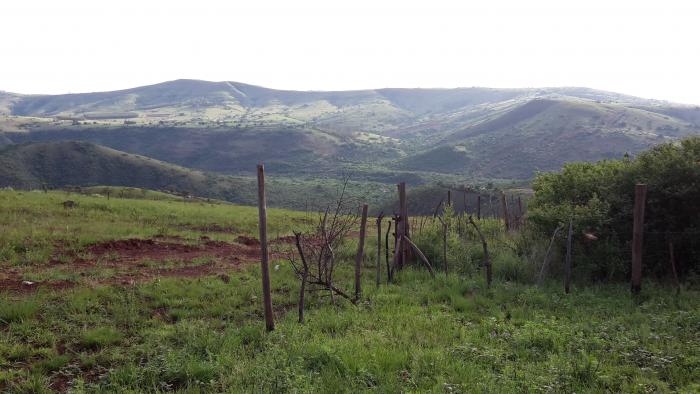The Constitution provides for various land rights, including the right to restitution and to equitable access to land. Section 25(6) creates a right to tenure security for those whose rights are legally insecure as the result of past discrimination. The Interim Protection of Informal Land Rights Act (IPILRA) of 1996 provides that the holders of informal rights may not be deprived of land except with their consent or by expropriation. Yet recent policy and law including the draft Communal Land Bill, seeks to transfer title and control over ‘communal’ land in the former homelands not to the 18 million ordinary people who have occupied it over generations, but to traditional leaders and institutions.
This approach necessarily denies that ordinary people have countervailing property and political rights in respect of the land at issue. The Department of Rural Development and Land Reform is faced with a conundrum. Its current approach contradicts the early land reform laws enacted to give effect of section 25 of the Constitution. For the last 10 years at least the Deparment has failed to enforce laws that vest rights in ordinary people such as IPILRA and the Labour Tenants Act of 1996. Communal Property Associations with restitution agreements signed over a decade ago are still waiting for their land to be transferred to them.
In the last two years there have been important judgments in which the courts have taken the Minister and DRDLR to task for failing to enforce laws that uphold restitution rights, and the rights of labour tenants. The Bakgatla CPA Constitutional Court judgment criticised the Department for failing to uphold the provisions of the Communal Property Associations Act of 1996 and for elevating the interests of a traditional leader over the choice made by the community. The question of who really owns South Africa - ordinary people, or elite groupings - has come into sharp political focus in the last year.
The new policies embody a one-size-fits-all version of unaccountable chiefly authority over land. They are justified on the basis of the Constitution’s recognition of customary law. Yet the Constitutional Court has repeatedly warned of the dangers of interpreting customary law to include politically-expedient distortions inherited from colonialism and apartheid. The Court has directed us to seek the true customary in the actual practices of ordinary people as they change and develop over time. It has defined customary law to be a ‘living law’ that constantly adapts to changing practices, warning of the dangers of static and inflexible interpretations that are at odds with lived reality.

It has celebrated the inclusive and participatory nature of customary law, and struck down patriarchal stereotypes such as male primogeniture that were codified during the colonial era. In the Alexkor judgment the Court recognised indigenous land rights as property rights on their own terms, a crucial breakthrough given the legacy of black people having been denied both statutory and common law land rights for hundreds of years.
The land project at LARC researches and documents current practices in respect of land rights in the former homelands, playing particular attention to how and by whom decisions are taken with regard to who gets land, how it is used and by whom, and in respect of transactions and inheritence. We work in a variety of contexts, including for example with the descendants of syndicates who bought land at the turn of the last century, villages of evicted farm workers living on South African Development Trust land that was bought up to be included in the former homelands, rural communities in the border area of the former Ciskei, deep rural areas in KwaZulu-Natal, and villages in Limpopo and North West.
What we find in these areas is very different from the one-size-fits-all version of custom embodied in current policy. There are many areas with no traditional leaders, nor did they have traditional leaders when they bought or settled on the land originally. Typically these areas have shared commonage but family-owned fields and residential sites. Village level structures deal with issues of day-to-day management, but decision with regard to family-held residential plots and fields are taken within the family. In many areas with traditional leaders similar arrangments apply with virtually all traditional leaders recognising and respecting family ownership of land, and the right of community members to shared access to common property areas such as forests, grazing land, water resources and thatching grass. While there are important differences between areas, in virtually all areas land-related decisions are taken at different levels of society, and in most instances traditional leaders support and depend on these decentralised decision making processes and structures. This is very different from the model of ‘tribal ownership’ proposed by the new policies, and the lack of consultation requirements in laws like the Traditional and Khoisan Leadership Bill (TKLB). The TKLB posits traditional leaders as the official representatives of the 18 million people living with the tribal boundaries created during the apartheid.
We have documented significant processes of positive change in relation to women’s rights, with unmarried and widowed women applying for, and being given residential sites in their own name across most former homeland areas. While the process is uneven and remains contested in many areas, it is very different from the prevailing stereotype of land rights vesting exclusively in men.
Through thick descriptions of current and past systems of land rights, the land project problematises the static and autocratic version of tribal ownership contained in past colonial versions of customary law, that have ironically been used to justify current policy. As already mentioned we pay particular attention to customary decision making processes, which we are repeatedly told have always been, and remain inclusive. This enable us to highlight instances in which the actions of some traditional leaders, in acting unilaterally, breach both customary law and the protections contained in the Interim Protection of Informal Land Rights Act.
